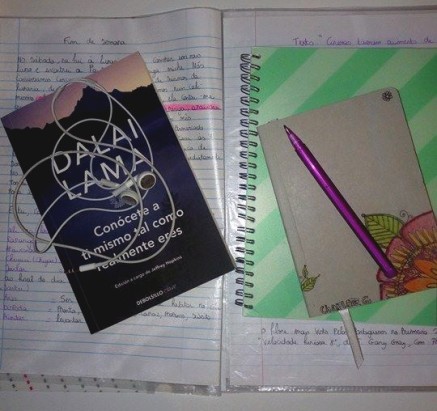In today’s article I want to talk about the 5 most common obstacles people face when learning a language. Maybe this will answer some questions for those of you who still are struggling to learn that new language you always wanted to speak
1 Finding the right materials
This is one of the most important things when you want to learn a new language. You have to find materials to start learning. Or more specifically the right materials. There are thousands of different books, apps, video’s, that you can use but the trick is to choose the one’s that will help you the most. That can differ for everyone, everyone has a different method that suits best for them. Of course you can ask other people who also learnt the same language for advice but you always should be looking for the method that suits best for you.
In my opinion everyone is different and that’s the same in studying.
2 Not seeing results
At the beginning stage of learning a language, you will learn a lot of new things, everything is new so you are excited. But as soon as you have the B2 level, it will take a lot more time to reach a C1 level. It even will become a little boring, because you don’t feel like improving anymore.
Why is that?
When you are at stage B2, you can have fluent conversations with native speakers, you can express your ideas and opinions, you can give simple presentations… At this stage you are an independent speaker.
To go from stage B2 to C1 you will have to step out of your comfort zone, you will have to use new vocabulary and incorporate more difficult topics in your conversations.
At stage C1 and C2 you are a proficient speaker, you don’t have to think anymore before you say something, you can use more difficult terms, you can participate in a professional conversation etc.
The reason why you keep getting stuck at stage B2 is because you keep using the same vocabulary and expressions you already know. You actually have to ‘’upgrade’’ your vocabulary, that’s the only way you will achieve that C1 level.
A language is something that you can keep learning.
Even in your mother tongue you can keep learning new expressions and words.
3 Not having enough exposure to the language
Whether you are learning the language by yourself, at school, on a language camp, …
A frequently made mistake is, not having enough exposure to the language outside of the lessons or the time you study. Studying a language once or twice a week won’t do it for you! You should use the language as often as possible to get used to it. For Instance, you can listen to the radio, read the newspaper, watch tv, or set your phone in your target language instead of using your mother tongue. These little things will help you more than you think.
If you want to read more on this, you can read the article on how I learn languages.
4 Not finding (making) the time
Some people say that they don’t find the time to study the language because they have to work all day and do other stuff after work but I am sure that if you really want something, you’ll do everything to make time, even if it’s just 10 or 15 minutes. If you study 10 or 15 minutes a day, it will surely make a difference.
You can use a journal to make it easier to plan your daily ‘study’ time. And to make sure you won’t forget it!
5 Being afraid to speak
The most common difficulty people face is being afraid to speak. They are afraid that people will laugh or that they will make mistakes.
But making mistakes is part of the learning process. When you make mistakes and people correct them, you will learn from it.
Speaking is one of the most important stages in language learning.
I hope this article was useful for you.
Did you face other obstacles or did you recognize yourself in some of these barriers?
Let me know, I would love to hear your experiences.


 In this article, I will talk about how I learn languages. First of all, I want to say you that this method may be working for you or not at all. Everyone is different so you have to find out for yourself what method works best for you.
In this article, I will talk about how I learn languages. First of all, I want to say you that this method may be working for you or not at all. Everyone is different so you have to find out for yourself what method works best for you.

 e time, I make use of language apps like Duolingo, Memrise, AnkiDroid, Flash Academy, Chineseskill, Tandem… This is just a fun way to practice and review my languages. They are all available on android and apple if you are interested. These apps are a great way to practice wherever you want, because you can use them wherever you go.
e time, I make use of language apps like Duolingo, Memrise, AnkiDroid, Flash Academy, Chineseskill, Tandem… This is just a fun way to practice and review my languages. They are all available on android and apple if you are interested. These apps are a great way to practice wherever you want, because you can use them wherever you go.